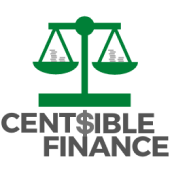
Write down these two amounts: $107,676 and $37,881. According to Bankrate’s Retirement Calculator, that’s how much you could accumulate in your retirement account by age 67, if you started saving at age 45 and 55, respectively. To break it down, if you’re 45 and you opened a retirement account with a 7% return, such as a 401(k)/403(b) or an Individual Retirement Arrangement (IRA)—also known as an Individual Retirement Account—and you saved 8% of your annual salary (let’s go with $30,000/year), you’d have $107,676 in your account by the time you turn 67.
If everything was the same but you decided to open a retirement account 10 years later, at age 55, you’d have $37,881—about a $70,000 difference. (Start just a few years earlier, like age 40, and the difference would be even greater.)
Putting away 8% of a $30,000 salary every year means you’re saving $2,400/year for retirement. Add on the 7% return (how much you earn based on interest), and you end up with $107,676. (According to Investopedia, you can expect between a 5% and 8% return on or your retirement account.)
But if I took that $2,400 and multiplied it by the 10 years I decide to wait before I begin saving for retirement (age 55), I’d end up with a $24,000 difference, not the $70,000 I mentioned earlier. So, where is that difference coming from?
Well, that’s where compound interest comes in…
The 8th Wonder I mentioned compound interest last time, when I explained how it works against us when it comes to debt, like credit card debt. It goes way over my head, but in short, compound interest is an interesting equation that basically means the money we invest is being reinvested. This is how Benjamin Franklin explained it: “Money makes money. And the money that money makes, makes money.”
So, although, you starting your retirement savings at age 45 and me starting mine at age 55 is a 10-year difference and technically $24,000 that I’m missing out on, because of compound interest, it actually ends up being nearly 3x as much lost in savings.
Albert Einstein called compound interest the “8th Wonder of the World.” And with $24,000 vs. $70,000, I can see why.
So, it pays to start saving for your retirement sooner, rather than later.
Have the Right Energy I know seeing the numbers above may seem scary or even painful to you. Maybe you’re thinking how much you could’ve earned, had you opened your retirement account 10 years sooner than you did. Or maybe you’re wondering why you haven’t started yet. But just remember that it’s not worth it to spend your time and energy dwelling on what you could have, should have, or would have done differently. You may realize that you haven’t been saving enough for your retirement, but look at this: Almost half of Americans over the age of 55 don’t have a retirement savings account. That’s according to the U.S. Government Accountability Office.
So, you’re not alone.
Don’t be ashamed. Be changed.
Think of today as an opportunity to start anew. And think of what you can do now to put future you in the best position possible.
And honestly… whether you’re younger and just starting out in the workforce, or you’re older and preparing to exit, retirement really isn’t that far away.
When we turn around, at some point, we’ll all come to realize life is short. So, think of retirement as if it’s going to be here tomorrow, and have the right energy.
Don’t pour your energy into what you should’ve done differently. Pour your energy into what you can do now. Today. Tomorrow. And the day after that. I don’t care how young or old you are… It’s never too soon or too late to make a positive change in your life (and in others’ lives).
Even if you save just $25 (or less than that) every month, just stick with it, because it’s better than $0.
Remember: A penny saved is a penny earned.
With gratitude,

Melody C. Kerr
Certified Financial Coach

